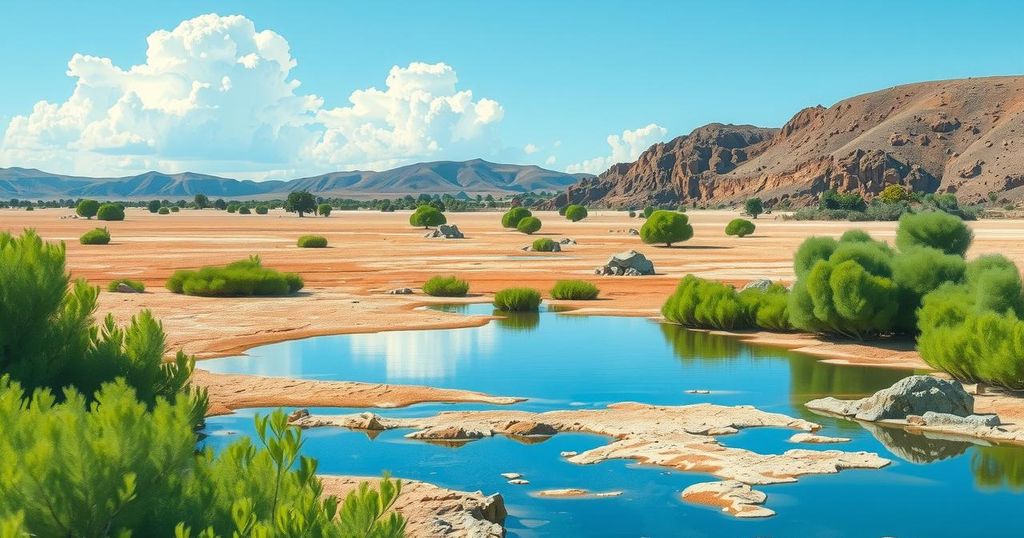Brazil is losing natural surface water, with a reported loss of 400,000 hectares from 2023 to 2022, largely due to climate change and land conversion. The Amazon plays a vital role in this dynamic, having experienced a decrease of 4.5 million hectares last year. There is a pressing need for adaptive water management strategies to address these losses.
Brazil, which holds 12 percent of the world’s freshwater reserves, primarily within the Amazon, is currently facing significant losses in natural surface water due to climate change and land conversion from forests to agriculture, as reported on Friday. The MapBiomas monitoring platform disclosed a loss of 400,000 hectares of aquatic surface between 2023 and the previous year, an area comparable to the size of Rhode Island.
Over the last 16 years, only 2022 witnessed an increase in surface water, while since 1985 Brazil has experienced a decrease of approximately 2.4 million hectares of river and lake areas. This decline has been attributed to severe drought, urban development, and excessive aquifer pumping. Juliano Schirmbeck, the MapBiomas Agua report coordinator, noted, “The dynamics of land occupation and use, along with extreme climate events caused by global warming, are making Brazil drier.”
Schirmbeck emphasized the urgent need for adaptive water management strategies and public policies to reverse the concerning trend of surface water loss. The forthcoming COP30 UN climate conference in November, to be held in Belem, the capital of the Amazonian state of Para, will further highlight these issues.
The Amazon basin harbors nearly two-thirds of Brazil’s surface water, significantly contributing to climate regulation by absorbing carbon dioxide. Alarmingly, the report indicated that the surface water area in the Amazon diminished by 4.5 million hectares compared to 2022, a size equivalent to Denmark. Moreover, the Pantanal wetlands, devastated by drought and wildfires last year, reported water surface levels in 2024 being about 61 percent below the average since 1985.
Although human-made water bodies, such as reservoirs and dams, have increased by 54 percent since 1985, this expansion has been insufficient to offset the loss of natural freshwater sources, according to the report.
In summary, Brazil is experiencing a significant reduction in its natural surface water reserves due to factors such as climate change and land use changes. The statistics reveal urgent challenges that necessitate adaptive water management and public policy interventions. The upcoming COP30 climate conference could serve as a platform to address these critical water management issues. Immediate action is essential to mitigate further declines in Brazil’s vital freshwater resources.
Original Source: www.ndtv.com






